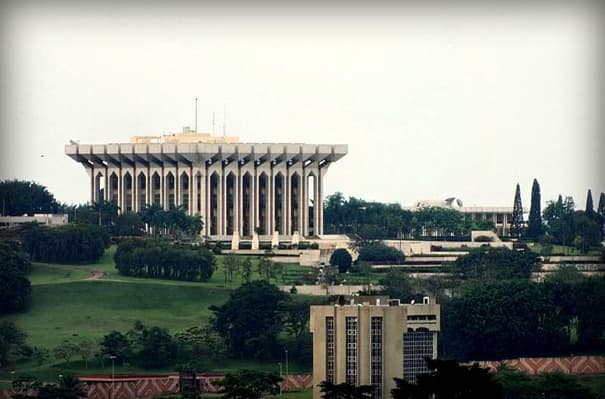YAOUNDÉ, Cameroon – Catholic bishops in Cameroon are calling for electoral reform as the country prepares for the 2025 presidential election.
In a March 28 Pastoral Letter, the bishops insist that the electoral code as it stands now cannot make for a free, fair and transparent election, echoing the demands of several opposition parties.
“The electoral process in Cameroon is governed by the Constitution and the 2012 Electoral Code?’ Despite this legal framework, the opposition parties and civil society in our country continue to criticize the electoral process for its lack of transparency, justice and fairness,” the bishops say.
They emphasized the need for a revised Electoral Code and improvements in the systems governing elections and campaign financing.
They acknowledged that immediate reforms may not impact this year’s elections but stressed the importance of establishing a code of good conduct.
“The code of good conduct for elections can be understood as a series of behavioral standards drawn up and adopted by all the parties involved in an electoral process and aimed at helping to create conditions conducive to the organization of fair, free, credible and transparent elections, and to the acceptance of the election results by all,” the bishops said.
Father Humphrey Tatah Mbuy, a leading priest and researcher in Cameroon, questioned the autonomy of the body in charge of managing elections in Cameroon, Elections Cameroon (ELECAM), explaining that there was “too much interference by the Ministry of Territorial Administration or the government in ELECAM, and people are questioning very seriously if ELECAM is as independent and autonomous as it should be.”
“Once it is not, it goes without saying that everything they organize will be seen by others as if they are teleguided. Also, if you look at the whole election the way it is, we don’t have an electoral map. Nobody knows how many people are in what part of Cameroon at any given moment,” Mbuy told Crux.
He said the absence of data on population dynamics makes it hard for political parties and contestants for political office to identify where to seek the most votes.
The priest added that the electoral code is defective in several areas, but offered no specifics, saying simply that the government’s seeming allergy to revising it as advocated by several opposition parties and civil society organizations means “there is something that may be hidden.”
“Opposition parties have also worked on the electoral code and suggested what could be added and what could be subtracted, and what could be better in our code. The better it is, the better for all of us. If elections are fair, they are fair for everyone,” he told Crux.
On February 17, the mail service of the Presidency of the Republic admitted to having received a document detailing the proposals of the opposition parties and civil society on what to improve on Cameroon’s electoral code.
The proposals include the introduction of a single ballot paper; lengthening the duration of electoral campaigns (to 30 days instead of 15); lowering the security deposit required for legislative elections (from $5,000) to $825 per candidate) and municipals (from $8 t9o $40); and prohibiting polling stations from being set up in barracks or chieftaincies.
The proposed reform also seeks to reduce the abstention rate by suggesting that voting should be made compulsory.
In addition, the proposed reform seeks to make ELECAM more independent of government and the ruling party and seeks to make the counting of votes more efficient and transparent.
Besides reforms to the electoral code and electoral process, the Catholic bishops in their March 28 Pastoral Letter also propose that the media should exercise balance in the way they cover elections.
They said the media’s role in democratic participation was indispensable, noting that without a clear understanding of the political landscape, facts, and proposed solutions, meaningful participation becomes impossible.
They emphasized the need to promote pluralism in information and communication, supported by laws that guarantee equal access to these tools.
The bishops, however, expressed concern that the concentration of media ownership among a few individuals or groups poses a significant threat to democracy, especially when intertwined with governmental and financial interests.
“The information provided by the media is at the service of the common good. Society has a right to information based on truth, freedom, justice, and solidarity,” they said.
They said a diverse media landscape is essential for voters to access reliable and varied information, enabling free and objective choices. Unfortunately, some digital media outlets thrive on disinformation, defamation, and hate speech, often exploiting tribalistic sentiments.
This underscores the need for vigilance from bodies like the National Communications Council (NCC) and adherence to laws, such as the 2019 legislation against hate speech and tribalism.
“Men and women of the media must be competent; distinguished by their expertise and the quality of the information they broadcast, as well as by their ability to resist pressures that run counter to their professional ethics,” the bishops said in their statement.













